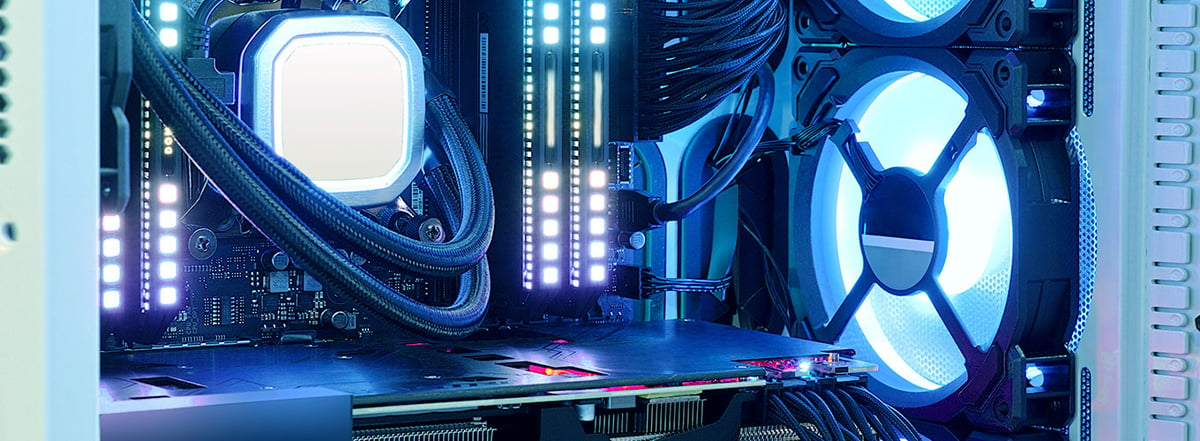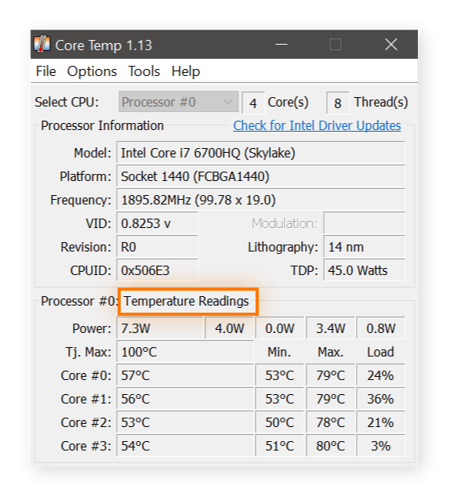As technology continues to advance, CPUs are becoming more powerful and energy-efficient, but with increased power comes increased heat. Understanding the safe temperature range for your CPU is crucial to prevent overheating issues that could potentially damage your hardware.
:max_bytes(150000):strip_icc()/how-can-i-test-laptop-temperature-2377618-068c4472846c4d5fbbc618d055077ad3.png)
Credit: www.lifewire.com
The Importance of CPU Temperature
The CPU, or central processing unit, is the brain of a computer. It performs complex calculations and coordinates the activities of all the hardware components. However, as it performs these tasks, it generates heat. If the CPU becomes too hot, it can lead to thermal throttling, reduced performance, or even permanent damage.
What is the Normal Temperature Range for a CPU?
The safe operating temperature for a CPU varies depending on the model and manufacturer. However, a general rule of thumb is to keep CPU temperatures below 80°C (176°F) during normal use and below 90°C (194°F) under heavy load.

Credit: www.avast.com
Consequences of Overheating
When a CPU exceeds its safe temperature threshold, it can result in reduced system stability, random shutdowns, and in extreme cases, permanent damage to the processor, motherboard, and other components. Over time, prolonged exposure to high temperatures can also decrease the lifespan of your CPU.
Causes of High CPU Temperature
Several factors can contribute to elevated CPU temperatures. Poor airflow within the computer case, a malfunctioning CPU cooler, overclocking, or expired thermal paste are common culprits. It’s essential to address these issues to maintain optimal CPU temperature.
How to Monitor CPU Temperature
Monitoring your CPU temperature is crucial for ensuring it stays within safe limits. Many software applications provide real-time temperature readings, allowing you to track changes and identify any potential issues before they cause damage.
Optimizing CPU Temperature
There are several ways to optimize CPU temperature, including ensuring proper airflow, upgrading CPU cooling solutions, applying high-quality thermal paste, and avoiding excessive overclocking. By implementing these measures, you can maintain a healthy temperature for your CPU.
Safe CPU Temperatures As Fast As Possible:
The key to preserving the life of your CPU is to ensure it operates within its safe temperature limits. Exceeding these limits can lead to irreversible damage to the processor and other vital components.
Checking and Monitoring CPU Temperature
Regularly checking and monitoring your CPU temperature is essential for preventing overheating. Utilize reliable software tools to keep a close eye on your CPU’s temperature, especially during intensive tasks like gaming or video rendering.
What to Do If Your CPU is Running Too Hot
If you find your CPU consistently running at high temperatures, it’s important to take action promptly. This may involve cleaning the dust inside your PC, reapplying thermal paste, or upgrading your CPU cooling solution.
Frequently Asked Questions Of How Hot Can A Cpu Run? Know Your Cpu’s Safe Temperature.
How Hot Can A Cpu Run Safely?
A CPU can safely run up to 80-85°C under heavy load, but it’s best to keep temperatures below 70°C to ensure optimal performance and longevity. Regularly clean the cooling system and apply quality thermal paste for efficient heat dissipation.
What Is An Unsafe Cpu Temp?
An unsafe CPU temperature is typically above 90 degrees Celsius, leading to potential damage to your processor and other components.
Is It Ok For My Cpu To Run At 100 C?
No, it is not OK for your CPU to run at 100°C. Running at such a high temperature can cause damage to the processor, motherboard, and other components. It is important to keep your CPU within a safe temperature range to ensure optimal performance and longevity.
What Temperatures Will Damage Cpu?
The short answer is that temperatures above the safe range can damage a CPU. Modern computers have mechanisms in place to shut down the CPU when it reaches a specific temperature to prevent damage. It is important to monitor and optimize CPU temperature for optimal performance and longevity.
Conclusion
Understanding and maintaining your CPU’s safe temperature range is essential for ensuring its longevity and optimal performance. By taking proactive measures to monitor and optimize CPU temperature, you can keep your system running smoothly without the risk of overheating-related issues.
Be diligent in monitoring and maintaining your CPU temperature to prevent potential damage and ensure your computer operates at its best.

I have been working as an SEO Expert in Bangladesh for a long time and now providing the best SEO Service in Bangladesh. With the approach to Semantic SEO that eschews superfluity. I can get your business web page at the top of the SERP list. Using the latest digital marketing trends, I can enhance your online visibility and drive more website traffic.
